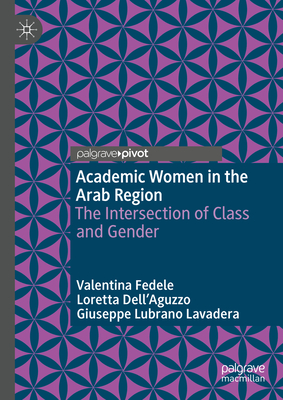Academic Women in the Arab Region: The Intersection of Class and Gender

Academic Women in the Arab Region: The Intersection of Class and Gender
This book offers the first systematic study of gender equality in academia in the South Mediterranean region, with a unique focus on the intersection of gender and class. Drawing on rich qualitative data from in-depth interviews with female academics in the region, this analysis moves beyond traditional bibliometric approaches to explore the deeper structural factors behind women's underrepresentation in senior academic roles. By combining survey, web scraped and interview data, the book examines the challenges women face throughout their careers and investigates whether female academics share the same socio-economic backgrounds as women in the wider society, or if they come from more privileged groups. In particular, this book considers whether those who succeed in academia possess higher levels of family capital. This analysis sheds light on the complex dynamics shaping women's academic trajectories in the region. It will be of interest to students and scholars in gender studies, intersectional economics, education, and Middle Eastern and North African (MENA) studies.
418.41Lei
418.41Lei
Livrare in 2-4 saptamani
Descrierea produsului
This book offers the first systematic study of gender equality in academia in the South Mediterranean region, with a unique focus on the intersection of gender and class. Drawing on rich qualitative data from in-depth interviews with female academics in the region, this analysis moves beyond traditional bibliometric approaches to explore the deeper structural factors behind women's underrepresentation in senior academic roles. By combining survey, web scraped and interview data, the book examines the challenges women face throughout their careers and investigates whether female academics share the same socio-economic backgrounds as women in the wider society, or if they come from more privileged groups. In particular, this book considers whether those who succeed in academia possess higher levels of family capital. This analysis sheds light on the complex dynamics shaping women's academic trajectories in the region. It will be of interest to students and scholars in gender studies, intersectional economics, education, and Middle Eastern and North African (MENA) studies.
Detaliile produsului










